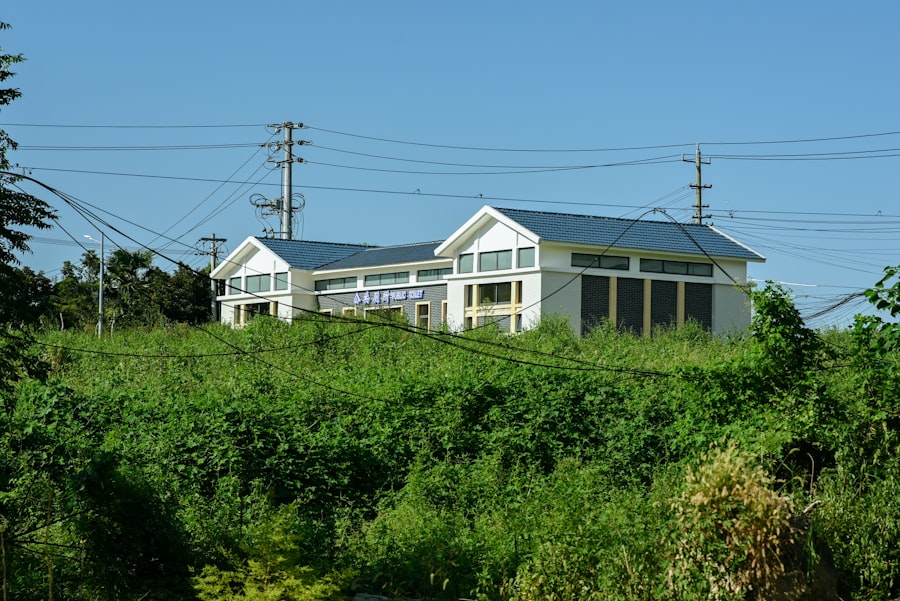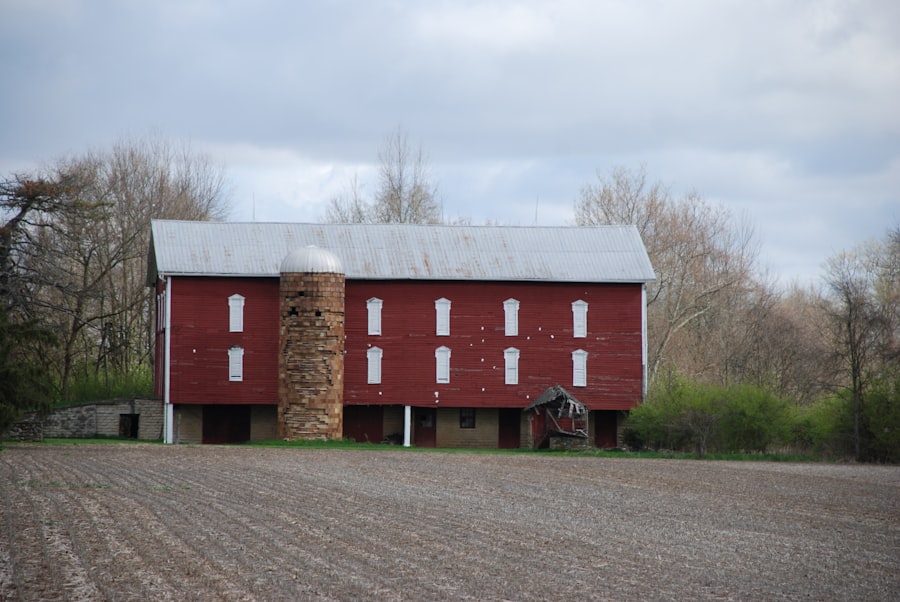Modular farmhouse homes represent a contemporary evolution of traditional farmhouse architecture, merging the rustic charm of rural living with modern construction techniques. These homes are prefabricated in sections or modules in a factory setting, which are then transported to the building site for assembly. This method allows for a high degree of precision and quality control, as each module is constructed under controlled conditions, minimizing the impact of weather and other environmental factors that can affect traditional building methods.
The design of modular farmhouse homes often incorporates classic elements such as wide porches, gabled roofs, and open floor plans, which resonate with the nostalgic appeal of farmhouses while integrating modern amenities. The modular approach to construction also allows for a variety of architectural styles and layouts, catering to diverse tastes and preferences. Homebuyers can choose from a range of designs that reflect their personal style, whether they prefer a more traditional aesthetic or a sleek, contemporary look.
The flexibility in design is one of the key features that sets modular farmhouse homes apart from conventional homes. Additionally, these homes can be built to meet local building codes and regulations, ensuring that they are not only aesthetically pleasing but also structurally sound and compliant with safety standards.
Key Takeaways
- Modular farmhouse homes combine traditional farmhouse aesthetics with modern modular construction techniques.
- They offer significant advantages including faster build times, cost savings, and high customization options.
- These homes promote environmental sustainability through reduced waste and energy-efficient designs.
- Advanced technology integration enhances comfort, energy management, and smart home capabilities.
- Despite benefits, challenges such as zoning restrictions and transportation logistics remain to be addressed.
Advantages of Modular Farmhouse Homes
One of the primary advantages of modular farmhouse homes is their efficiency in construction. Because the modules are built in a factory setting, the construction process is significantly faster than traditional building methods. This speed is particularly beneficial for those looking to move into their new home quickly.
The assembly process on-site typically takes only a few days to weeks, depending on the complexity of the design and the number of modules involved. This rapid turnaround time can be especially appealing for families needing to relocate or for those looking to capitalize on favorable market conditions. Moreover, modular farmhouse homes often come with enhanced quality assurance compared to site-built homes.
The controlled environment of a factory allows for rigorous quality checks at every stage of construction. This means that issues such as moisture damage or structural inconsistencies can be identified and rectified before the modules leave the factory. As a result, homeowners can enjoy peace of mind knowing that their home has been constructed with a high level of craftsmanship and attention to detail.
Environmental Benefits of Modular Farmhouse Homes

The environmental benefits of modular farmhouse homes are significant and multifaceted. One of the most notable advantages is the reduction in waste generated during the construction process. Traditional building methods often result in substantial material waste due to on-site cutting and adjustments.
In contrast, modular construction allows for precise measurements and cuts made in a factory setting, leading to more efficient use of materials. This not only minimizes waste but also contributes to a more sustainable building practice overall. Additionally, many manufacturers of modular farmhouse homes are increasingly adopting eco-friendly materials and energy-efficient technologies in their designs.
For instance, builders may use sustainable wood sourced from responsibly managed forests or incorporate insulation materials that enhance energy efficiency. Furthermore, many modular homes are designed to accommodate renewable energy systems such as solar panels or geothermal heating, allowing homeowners to reduce their carbon footprint and reliance on non-renewable energy sources. This commitment to sustainability aligns with the growing trend toward environmentally conscious living and reflects a broader societal shift toward greener practices.
Customization Options for Modular Farmhouse Homes
| Customization Option | Description | Typical Range | Impact on Build Time | Impact on Cost |
|---|---|---|---|---|
| Exterior Siding | Choice of materials such as wood, vinyl, or fiber cement | Wood, Vinyl, Fiber Cement | +1 to 3 weeks | Low to Medium |
| Floor Plan Layout | Customization of room sizes and arrangement | Various configurations | +2 to 4 weeks | Medium to High |
| Roof Style | Options include gable, hip, or flat roof designs | Gable, Hip, Flat | +1 to 2 weeks | Low to Medium |
| Interior Finishes | Choice of flooring, cabinetry, and countertops | Laminate to Hardwood | +1 to 3 weeks | Medium to High |
| Energy Efficiency Features | Insulation upgrades, solar panels, and efficient windows | Standard to Premium | +1 to 2 weeks | Medium to High |
| Porch and Deck Options | Size and style customization for outdoor living spaces | Small to Large | +1 to 3 weeks | Low to Medium |
| Smart Home Integration | Installation of smart thermostats, lighting, and security | Basic to Advanced | +1 week | Medium |
Customization is a hallmark of modular farmhouse homes, allowing homeowners to tailor their living spaces to meet their specific needs and preferences. From selecting floor plans to choosing finishes and fixtures, the options available can be extensive. Homebuyers can work with designers to create open-concept layouts that maximize space and natural light or opt for more traditional configurations that emphasize separate rooms for privacy and functionality.
This level of personalization ensures that each home reflects the unique lifestyle and tastes of its occupants. In addition to structural customization, homeowners can also select from a variety of exterior finishes, roofing materials, and landscaping options. Whether one prefers classic wood siding or modern metal cladding, the choices available can significantly impact the overall aesthetic appeal of the home.
Interior customization options may include selecting cabinetry styles, flooring materials, and even energy-efficient appliances that align with the homeowner’s vision for their space. This degree of flexibility not only enhances satisfaction but also allows for a more meaningful connection between the homeowner and their living environment.
Cost and Time Savings of Modular Farmhouse Homes
Cost savings are another compelling reason why many individuals and families are gravitating toward modular farmhouse homes. The streamlined construction process often results in lower labor costs since much of the work is completed in a factory setting where efficiency is maximized. Additionally, because modular homes are built faster than traditional homes, homeowners can save on financing costs associated with extended construction timelines.
This financial efficiency makes modular farmhouse homes an attractive option for first-time buyers or those looking to invest in real estate without breaking the bank. Time savings extend beyond just the construction phase; they also encompass the entire home-buying experience. With modular homes, buyers can often expect shorter wait times from initial design consultations to final delivery.
This expedited process allows families to settle into their new homes more quickly, which can be particularly advantageous for those relocating for work or other life changes. The combination of cost-effectiveness and time efficiency positions modular farmhouse homes as a practical solution for modern living.
Integration of Technology in Modular Farmhouse Homes

The integration of technology into modular farmhouse homes is transforming how we think about residential living. Many manufacturers are incorporating smart home technologies that enhance convenience, security, and energy efficiency. For instance, homeowners can install smart thermostats that learn their heating and cooling preferences over time, optimizing energy usage and reducing utility bills.
Additionally, smart security systems equipped with cameras and motion sensors provide peace of mind by allowing homeowners to monitor their property remotely. Moreover, advancements in home automation systems enable residents to control various aspects of their home environment through mobile apps or voice commands. From adjusting lighting levels to managing appliances, these technologies create a seamless living experience that aligns with contemporary lifestyles.
As technology continues to evolve, modular farmhouse homes are well-positioned to incorporate new innovations that enhance comfort and sustainability.
Challenges and Limitations of Modular Farmhouse Homes
Despite their many advantages, modular farmhouse homes do face certain challenges and limitations that potential buyers should consider. One significant concern is the perception surrounding modular construction; some individuals may associate it with lower quality or inferior craftsmanship compared to traditional site-built homes. Overcoming this stigma requires education about the rigorous standards and quality control measures employed in modular construction processes.
Another challenge lies in financing options for modular homes. While many lenders are becoming more familiar with modular construction, some may still view these homes as unconventional or risky investments. This perception can lead to difficulties in securing loans or obtaining favorable interest rates compared to traditional home financing options.
Prospective buyers should conduct thorough research and work with knowledgeable lenders who understand the nuances of modular home financing.
The Future of Sustainable Living with Modular Farmhouse Homes
As society increasingly prioritizes sustainability and eco-friendly practices, modular farmhouse homes are poised to play a pivotal role in shaping the future of residential living. The combination of efficient construction methods, customizable designs, and environmental consciousness aligns perfectly with contemporary values surrounding sustainable living. As more builders adopt green practices and innovative technologies, modular farmhouse homes will likely become synonymous with responsible homeownership.
Furthermore, as urban areas continue to grow and housing demands increase, modular construction offers a viable solution to address these challenges without compromising quality or sustainability. By providing affordable housing options that minimize environmental impact, modular farmhouse homes can contribute significantly to creating resilient communities that prioritize both people and the planet. As we look ahead, it is clear that modular farmhouse homes will not only redefine our understanding of modern living but also pave the way for a more sustainable future in residential architecture.



